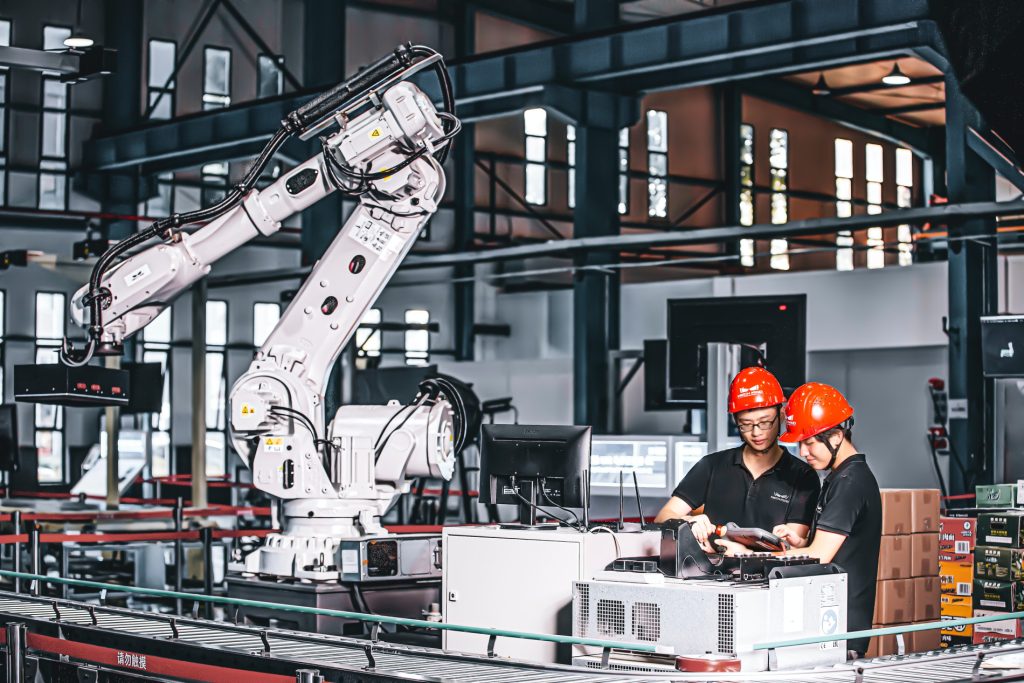Unravelling the correlation between AI and Human Intelligence
The rapid advancement of Artificial Intelligence (AI) and its integration into various aspects of our lives has spurred intense debates and speculation about its impact on human intelligence. In this blog, we dive into the complex relationship between AI and human intelligence, exploring how cutting-edge technologies are reshaping this correlation and paving the way for a future where humans and AI collaborate in unprecedented ways.
Cognitive Augmentation:
AI technologies have evolved to become powerful cognitive tools that augment human intelligence. With advancements in machine learning, natural language processing, and computer vision, AI systems can process vast amounts of data, derive meaningful insights, and support humans in decision-making processes. Cognitive augmentation empowers individuals by enhancing their problem-solving capabilities, expanding their knowledge base, and accelerating their learning potential.
Neural Networks and Brain-Computer Interfaces:
The convergence of AI and neuroscience has led to ground-breaking developments, including neural networks and brain-computer interfaces (BCIs). Neural networks, inspired by the human brain’s interconnected neurons, enable AI systems to simulate complex thought processes and learn from experience. BCIs establish a direct communication pathway between the brain and external devices, enabling humans to interact with AI systems seamlessly. This integration holds tremendous potential for shared intelligence, where AI learns from human brain activity and assists with cognitive tasks.
Explainable AI and Human Interpretability:
As AI systems become more sophisticated, the need for explainable AI arises. Explainable AI aims to bridge the gap between AI algorithms and human interpretability, ensuring that AI decisions can be understood and trusted by humans. By providing transparent explanations and insights into AI’s decision-making processes, humans can collaborate effectively with AI systems, enabling a deeper understanding of complex problems and fostering greater trust in AI-based solutions.
Emotional Intelligence and Empathetic AI:
While AI systems have traditionally focused on cognitive tasks, recent advancements have explored the realm of emotional intelligence and empathy. Emotional AI, also known as affective computing, enables AI systems to recognise, interpret, and respond to human emotions. By incorporating emotional intelligence into AI algorithms, machines can better understand human needs, preferences, and mental states, leading to more personalised and empathetic interactions. This intersection of AI and emotional intelligence holds immense potential for applications in healthcare, mental health support, and customer service.
Ethical Challenges and Human Oversight:
As AI becomes increasingly autonomous, ethical challenges arise that demand human oversight and guidance. Humans must grapple with issues such as bias in AI algorithms, privacy concerns, and the impact of AI on employment and socioeconomic structures. Establishing robust ethical frameworks, regulations, and accountability mechanisms is crucial to ensure AI development and deployment align with human values, fairness, and societal well-being.
Continuous Learning Ecosystem:
To harness the full potential of AI and human intelligence collaboration, a continuous learning ecosystem must be fostered. This ecosystem entails lifelong learning initiatives for humans to acquire new skills, adapt to technological advancements, and develop AI literacy. Simultaneously, AI systems should be designed to learn from human feedback, iterate on their algorithms, and improve performance over time. By nurturing a symbiotic relationship between AI and human learning, we can unleash innovation and adaptability in the face of rapidly evolving technologies.
The intricate correlation between AI and human intelligence in the era of advanced technologies presents immense opportunities and challenges. By embracing cognitive augmentation, neural networks, explainable AI, emotional intelligence, and ethical oversight, humans can forge a path of collaboration with AI that amplifies our cognitive capabilities, fosters empathy, and propels us toward a future where AI serves as a powerful ally. Nurturing this correlation will require ongoing efforts to shape AI development, establish ethical standards, and foster a continuous learning ecosystem.
ARE YOU LOOKING FOR STAFF IN THE HUNTER VALLEY NEWCASTLE REGION?
ASR Recruitment is a boutique recruitment agency specialising in Human Resources recruitment, Engineering recruitment, IT & Technology recruitment, Business Support recruitment, Marketing & Communications recruitment, Accounting & Finance recruitment and Construction recruitment.
Find out more by visiting our Clients page!
Looking for a new Role Search Jobs here.
From our blog
Read our articles below to see our latest insights.









